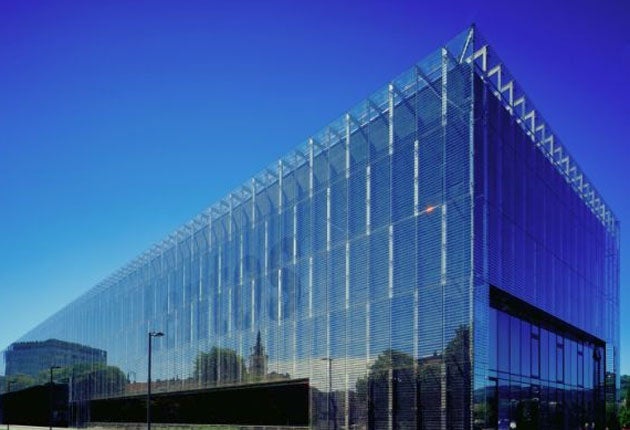Linz: The other capital of the arts
This unsung Austrian city deserves the spotlight, says Mark Rowe

Linz may be among the least visited of Austria's major cities – at least by Britons drawn to Vienna, Innsbruck and Salzburg – but its designation encapsulates the spirit of the European Capitals of Culture programme.
Austria's third largest city, and the capital of Upper Austria, nudging towards the Czech border, is home to just 190,000 people. It has a reputation for industry that is inescapable if viewed from the road. But it holds one major advantage over the capital – it lies in the Danube valley and makes full use of the river, straddling it via the main bridge, Nibelungenbrücke.
This is a city that boasts polished architectural credentials, ranging from medieval and gothic to baroque and Renaissance, and where grand 18th-century buildings are knitted together to form imposing squares. Parks and open spaces make up 60 per cent of its boundaries and include one of Europe's finest botanical gardens – with riverside beer gardens and cafés keen to serve you a slice of the regional delicacy, the latticed Linzertorte.
Linz has solid cultural appeal, both in its association with musical and scientific heavyweights and its repository of small art galleries. Mozart composed the Linzer Symphony here (a bust of the composer stands outside the house where he wrote the score); the composer Anton Bruckner was organist at Linz Cathedral; the philosopher Ludwig Wittgenstein went to school here; and the city was also home to the astronomer Johannes Kepler, who first described the motion of planets in the solar system.
Visitors will invariably head first for the city's main square in the old town, on the south bank of the river. The square is home to the old city hall, dating from the early 16th century, and cathedral, as well as a baroque plague column, a distinctive feature across this part of central Europe. A short stroll away is the Martinskirche, the oldest church in the country. Its origins date from the 8th century and it was built in part from Roman tombstones. Inside are 15th-century frescoes.
The south bank is also where you'll find the city's best museum, the Lentos Museum of Modern Art, a striking glass-encased building by the Danube that becomes illuminated at night.
The city is overlooked by its highest peak, the 1,760ft Pöstlingberg, on the plateau of Urfahr. Until the middle of the year, the peak can be reached by a bus (and on foot), whereupon the electric mountain tram, Europe's steepest and dating from 1898, reopens. At the top of the hill you'll find the 18th-century basilica, whose twin spires feature on every postcard of Linz.
As you would expect, there are many festivals and cultural events planned. Several will be linked to Kepler, partly associated with the International Year of Astronomy. Ars Electronica, held in September, is one of the world's most important digital art festivals. Pflasterspektakel, a festival of international street art, takes place in July. The Bruckner Orchestra performs regularly, and September will see a festival in the composer's honour.
But there is a darker side to Linz's history: Adolf Hitler intended the city to become one of the five "Führer Cities" of the Third Reich. He considered Linz, where he lived for nine years, his home town. He intended to make it a centre for National Socialist ideology, and an exhibition, which runs to 22 March in the Linz Palace Museum, takes a diplomatic look at these plans. They included an Adolf Hitler Hotel and a museum on the scale of the Hermitage which would house 16 million works of art, most of them taken from Jewish collections.
It's hard not to walk around and project oneself into a parallel world in which the scheme became a reality, but to do so would be unfair on an unsung city that deserves better than to be for ever linked to the man.
Further information: Austria Tourist Board (020-7440 3830; www.austria.info; www.linz.at/english/)
Join our commenting forum
Join thought-provoking conversations, follow other Independent readers and see their replies
Comments
Bookmark popover
Removed from bookmarks